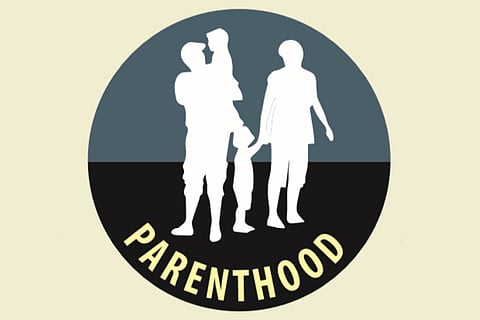

Chennai
They are not there to fulfill my needs and ambitions. I do not expect anything from my children.” This view may be shared by many new age parents who feel that having expectations can lead to unnecessary stress and pressure for the child. These parents try to move away from communicating any expectations to their children. But does this help the child’s development?
In our article last week, we explored this topic and looked at research which showed that children do benefit from a healthy level of expectations from parents when it is combined with a warm and deeply connected relationship. Today we will reflect on questions such as- How do I know if my expectations are reasonable? When could my expectations become harmful? How do I find the right balance?
We all struggle with these dilemmas every day from small things such as, “Is it realistic to expect my hungry and tired child to put away his toys” to larger issues such as, “Am I putting too much pressure on my child to get good marks?” We may have expectations around behaviour (being polite, taking responsibility), achievement (academics, sports, music), family culture and norms (respect to elders, attending family functions), values (honesty, consideration for others). Some expectations may be non-negotiable for you or your family.
There are no blanket rules about which expectations are OK and which are not. We need to closely observe what is going on for the child. A parent spoke about how her first child was a little scared of learning to swim but with some encouragement took to it. Her second child was terrified of the water and disliked the coach. At that point, the parent was sensitive to the child’s nature and needs and decided to stop swimming classes. After some time, the parent discussed with the second child why she felt learning to swim was an essential life skill and worked to find a space and coach with whom the child was comfortable. From this example, one can draw many points to help us in trying to find that balance around expectations:
Why do I have this expectation? Have clarity on why we want the child to do something: Is it because it is our dream? Is it what society is expecting? Is it for their safety? Is it because everybody around us is doing it? Or is it something which is helping the child grow and develop?
How do I pick my battles? Reflect on whether we are having too many expectations and hence making the child feel burdened.
What are my observations about my child? Is she capable? Does the child have the ability, readiness or interest? Is the child stressed out by this expectation? When children do not live up to our expectations, they may grow up always feeling, “I am not good enough.” Hence it is important that our expectations are in keeping with what the child can or wishes to do.
Are expectations turning into demands and use of force? Sometimes a child may not want to do what we expect, and then we may make them do what we want by threatening, scolding or by giving bribes. This will not contribute to the child’s development and also harm the parent-child bond.
How am I communicating these expectations? Am I taking my child’s wishes and feelings into consideration before I ask her to do something? Am I providing my child with reasons for the expectations I have for her? Am I respecting my child’s opinion and encouraging him or her to express them...even if they are different from my own?
After we go through this process, if we hold on to some expectations, we can communicate these respectfully. Children are always willing to respond to us if they feel heard and understood.
I recently met up with the parent who had spoken about how she does not believe in having expectations from children. I asked her how things were going, and she shared an interesting story. Her daughter had joined a college in another city. She didn’t want to put pressure on her child to talk to her every day, so she kept waiting for her child to call. When days went by without any phone call she got very upset and called her daughter and said, “I try not to make demands on you but I thought you would realise how much we worry about you and have been waiting for news from you.” Her daughter was taken aback and said, “How will I know what you expected if you didn’t tell me?” The mother said, “I didn’t want to burden you with my expectations.” To which the daughter replied, “Amma, it’s OK to have expectations. We all are human and have expectations of each other. I only wish you would be clear about your expectations so I can understand and meet them.” The mother realised that expectations are a part of all relationships and our children feel comfortable if we communicate what we expect with clarity.
In conclusion, having expectations which are appropriate to the child and the situation combined with warmth, good attachment, positive guidance and a collaborative approach helps our children grow into well-rounded individuals.
—Sunitha Ravi is a certified parent educator with Parenting Matters, an organization which empowers parents to build deeper connection in families. To know more about our programs and workshops, look us upwww.parentingmatters.in
Visit news.dtnext.in to explore our interactive epaper!
Download the DT Next app for more exciting features!
Click here for iOS
Click here for Android